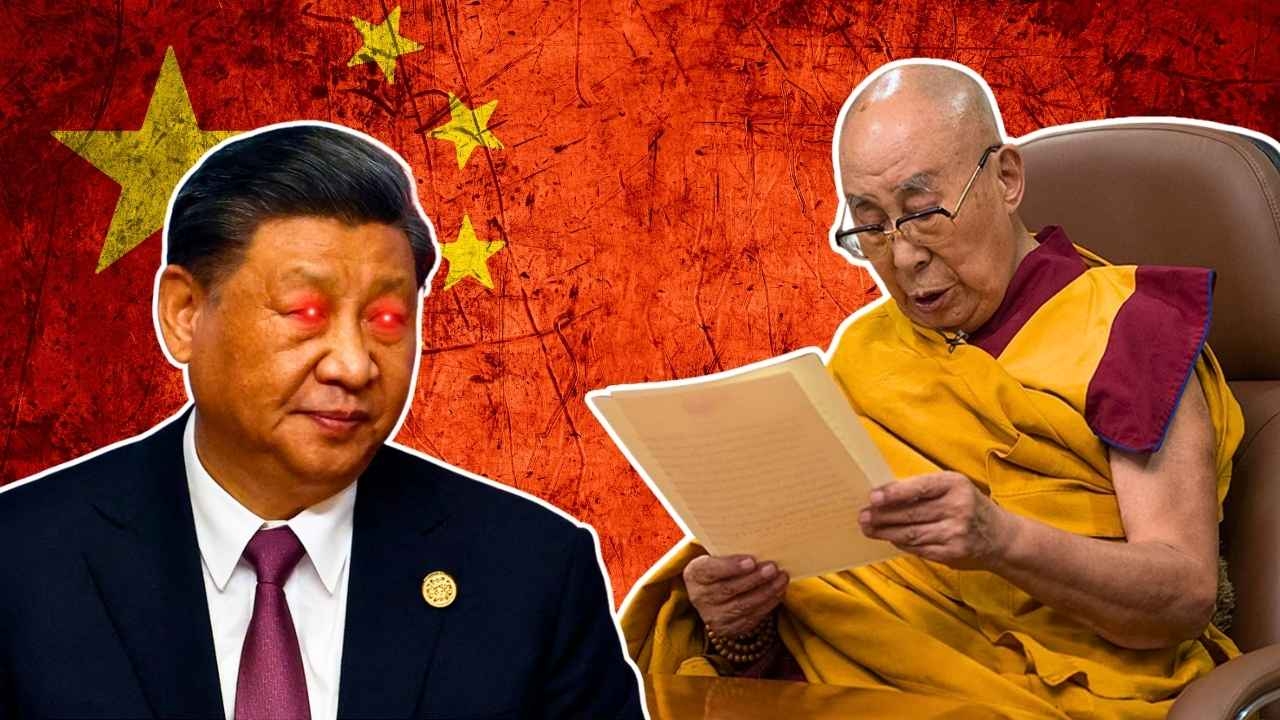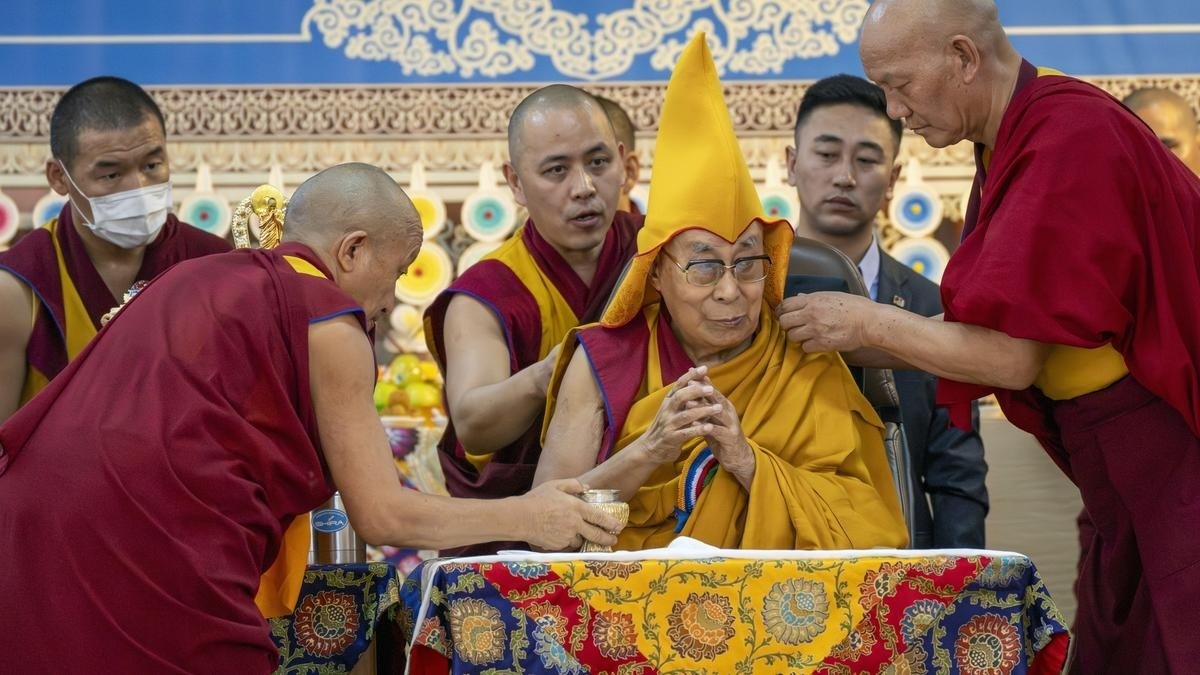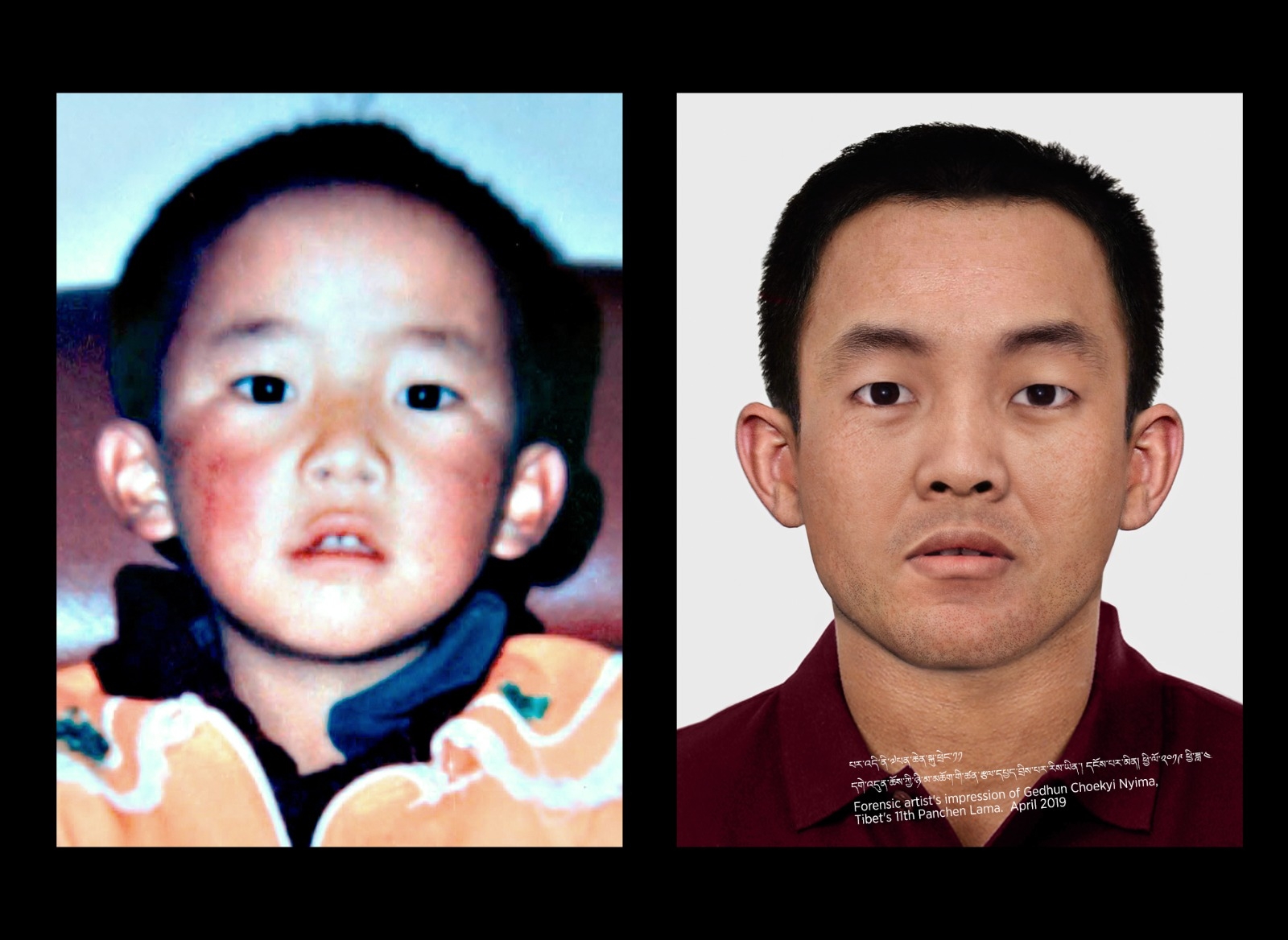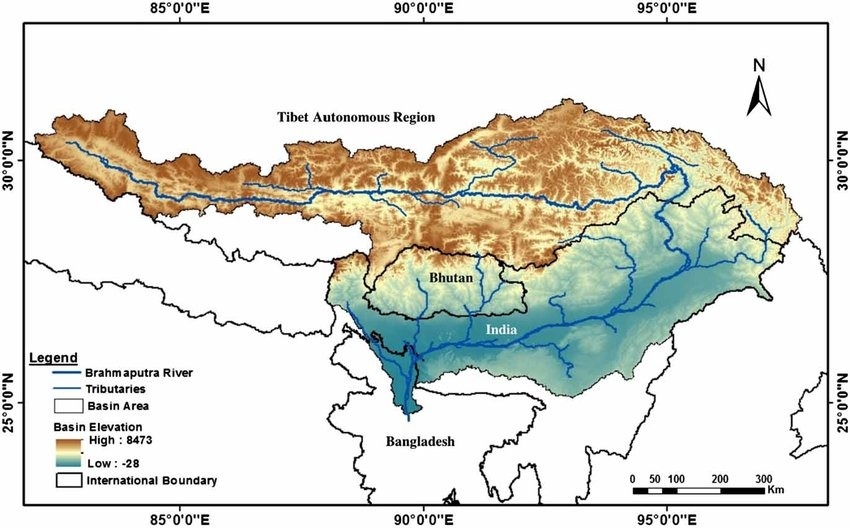The Hypocrisy of Communist Expansion: China’s Meddling in Tibet’s Spiritual Affairs
China, which denies religion, now wants to control Tibetan reincarnation traditions to push its expansionist agenda and eye India’s Arunachal Pradesh.
Total Views |

For centuries, Tibet has been a beacon of peace, spirituality, and cultural richness, with the Dalai Lama at its heart as a symbol of compassion and wisdom. Yet, China’s Communist regime, which claims to champion progress and unity, is casting a dark shadow over this sacred land.
By trying to control the selection of the next Dalai Lama and linking it to territorial ambitions in India’s Arunachal Pradesh, China’s actions reveal a glaring hypocrisy: a government that rejects religion is shamelessly interfering in Tibet’s spiritual traditions to justify its illegal occupation and fuel further expansionist goals.
China’s Plan to Appoint Its Own Dalai Lama

China’s invasion of Tibet in 1950 was a brutal act of aggression, cloaked in the false narrative of “liberating” Tibetans from a so-called backward society. The People’s Liberation Army (PLA) overwhelmed Tibet’s small, ill-equipped forces, and the Seventeen Point Agreement, signed under duress in 1951, formalized China’s control.
Since then, the Chinese Communist Party (CCP) has suppressed Tibetan culture, destroyed monasteries, and silenced dissent, all while claiming Tibet as a part of China.
But their latest move is perhaps the most audacious: Beijing insists it has the right to choose the next Dalai Lama, a spiritual leader revered by millions worldwide.
The Dalai Lama, now 90, has stressed that his successor will be chosen by his non-profit Gaden Phodrang Foundation, based on sacred Tibetan traditions, and will likely be born outside China, in a “free world” where the process remains untainted by political interference. Yet, China claims it will use a Qing dynasty ritual involving a “golden urn” to select a Dalai Lama within its borders, asserting that only the CCP can approve the reincarnation.
This is absurd—a government that dismisses religion as superstition has no business meddling in spiritual matters. The hypocrisy is stark: China bans photos of the Dalai Lama, jails Tibetans for supporting him, and yet wants to hijack the very institution it denounces to legitimize its illegal occupation.
Panchen Lama goes missing after reincarnation

The case of the Panchen Lama, the second-highest figure in Tibetan Buddhism, exposes China’s playbook. In 1995, the Dalai Lama identified a young boy as the Panchen Lama’s reincarnation, but China abducted him, and he remains missing till day. Beijing then appointed its own Panchen Lama, a puppet figure rejected by Tibetans.
This is the fate they envision for the next Dalai Lama—a Chinese-approved figurehead to rubber-stamp their control over Tibet. By manipulating a sacred tradition, China hopes to erase Tibetan identity and rewrite history to justify its 1950 invasion. Tibetans, both in Tibet and in exile, see through this farce, and so must the world.
Arunachal Pradesh: China’s Expansionist Excuse
China’s hypocrisy doesn’t stop at Tibet. It’s now eyeing India’s Arunachal Pradesh, claiming it as “South Tibet” and using the Dalai Lama’s succession as a pretext for potential aggression. Beijing has repeatedly renamed places in Arunachal, with its Ministry of Civil Affairs issuing “standardized” Chinese names for 27 locations in 2025, calling it part of “Zangnan.”
Why this obsession? Arunachal is home to Tawang, the birthplace of the sixth Dalai Lama and a key center of Tibetan Buddhism, housing the second-largest Tibetan monastery after Lhasa’s. China fears that after the current Dalai Lama’s passing, Tawang’s monks, backed by India, might identify a successor, challenging Beijing’s handpicked candidate and keeping the flame of Tibetan resistance alive.
Also, Arunachal is the origin of 80% of water for Brahmaputra. Only 20% of this river sources from China occupied territories.

By claiming Arunachal as part of Tibet, China is laying the groundwork for a dangerous narrative: if the next Dalai Lama is born in Arunachal, Beijing could argue it has the right to intervene, potentially justifying military action.
This is not just about spiritual control—it’s about territorial ambition. The 1962 Sino-Indian War, where China briefly occupied Tawang, shows its willingness to act on these claims. India has firmly rejected China’s renaming as “vain and preposterous,” asserting Arunachal’s integral place in the nation. But the threat looms, especially as China ramps up its military presence along the Line of Actual Control (LAC).
This move exposes China’s double standards. While preaching “non-interference” in other countries’ affairs, Beijing is aggressively interfering in both Tibet’s religious traditions and India’s sovereignty. The CCP’s so-called “Reincarnation Law,” requiring monks to seek government permission to reincarnate, is a grotesque overreach. It’s clear: China wants to control the Dalai Lama’s succession not just to tighten its grip on Tibet but to create a flimsy excuse for encroaching on Arunachal.
A Call for Solidarity
The Dalai Lama, exiled in India since 1959, has been a global voice for peace, earning the Nobel Peace Prize for his nonviolent advocacy. India, home to over 100,000 Tibetan refugees, has stood by him, offering sanctuary and support. This bond between India and Tibet is rooted in shared values of compassion, freedom, and cultural pride.
But China’s actions threaten this harmony. By trying to impose its own Dalai Lama and eyeing Arunachal, Beijing is not just attacking Tibetan spirituality—it’s challenging the sovereignty and dignity of both Tibet and India.
We cannot let this hypocrisy go unchecked. The international community, especially friends of Tibet and India, must rally behind the Dalai Lama’s vision for a free and fair succession process. The United States has already taken a stand, with laws in 2020 and 2024 sanctioning China for meddling in Tibetan rituals. Other nations should follow suit, condemning Beijing’s attempts to control sacred traditions and its territorial provocations in Arunachal.
Tibetans, whether in Aba’s Kirti monastery or Dharamshala’s exile community, deserve the right to choose their spiritual leader without fear of imprisonment or erasure.
China’s Communist regime claims to champion progress, yet it clings to imperialist tactics, trampling on Tibet’s soul and eyeing India’s borders. The world must see through this charade. Let’s stand with Tibet and India, not just for their sake, but for the universal values of freedom, faith, and justice. The Dalai Lama’s legacy—and Tibet’s future—depend on it.
Article by

Suraj Bhan Sharma
Younginker

